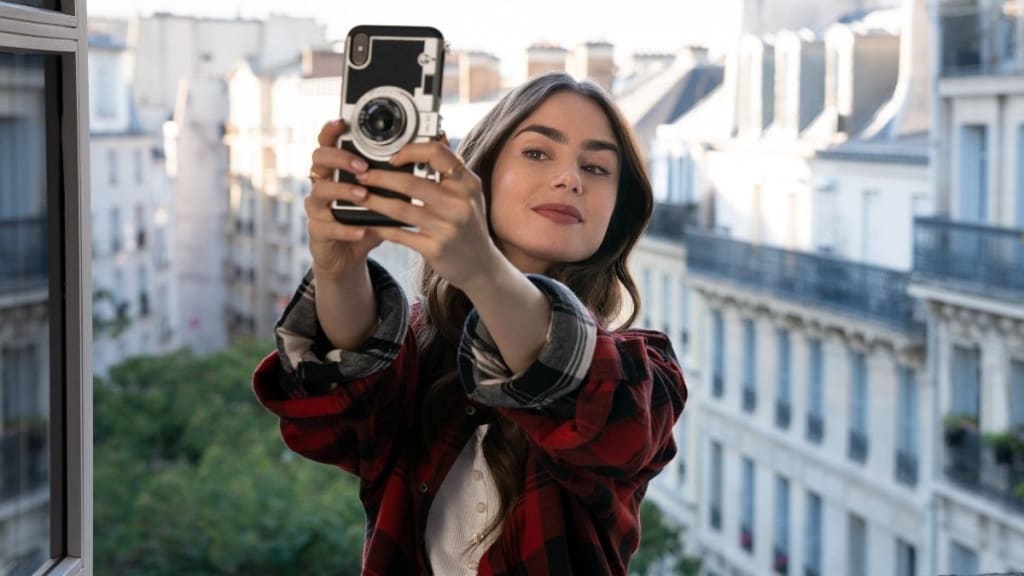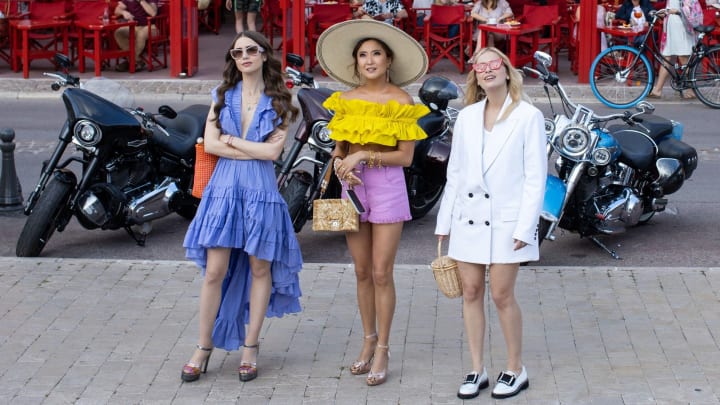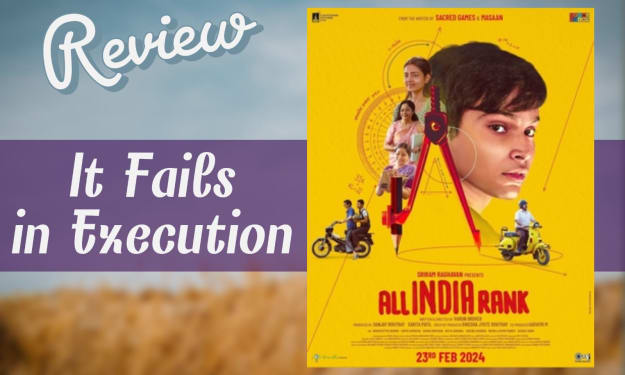Inexplicably, "Emily in Paris" has generated a lot of buzz - and not all of it positive.
The Netflix rom-com "Emily in Paris," a new series from the "Sex and the City" writer and producer Darren Star

The Netflix rom-com "Emily in Paris," a new series from the "Sex and the City" writer and producer Darren Star about an American marketing maven sent to the French capital, is set in fantasy Paris so much so that the opening credits are of picturesque Parisian pâtisseries where everything is straight out of a window display.
Emily Cooper (Lily Collins), a young American woman from Chicago, moves to Paris. She struggles with the differences she faces as an American who has moved to the French capital. Finding herself divided between traditional French values and modern American custom.
Emily in Paris is a fictional work, and it's presented very much as one from the start. As the credits begin to roll, one of the opening scenes reveals Emily snapping selfies in the city of lights before squeezing into a Metro car packed with costumed tourists. It's painfully unrealistic but unlike many, I enjoyed watching it.
If you were watching Netflix's new comedy Emily In Paris and thinking, "Hmmm, this doesn't seem accurate," you are not alone. While the show is set in Paris and was filmed entirely on location (during which time the crew suffered through some dramatic weather), many of its more cinematic details may seem over-the-top to viewers familiar with life in the city.
Critics have panned the Netflix series Emily in Paris, which debuted in mid-2020, for its simplistic portrayal of Paris and its characters.
Emily in Paris managed to depict the lives of Americans in the City of Light as vapid and opportunistic, while still managing to offend even those residents who make no claim at sophistication. Soon after its release, one French commenter tweeted: "I'm not sure whether I should consider this a hate crime, or an act of love."
The show was called "hideously offensive" and "an insult to the French people".
Parisians were particularly quick to notice their city had been cast as a backdrop for conspicuous consumption rather than as a home. "I don't like it when Paris is depicted as nothing but an expensive backdrop," another commenter lamented.
The series' version of Paris isn't real. That's the joke, and both Emily in Paris and its audience seem to be in on it. When the Netflix series' first season received Golden Globe and Emmy nominations for Best Comedy, critics groaned that it was too artless and only nominally humorous to merit such acclaim.
The adventures of Emily in Paris continue in the second series! She is still in Paris, working for an advertising firm whose high-profile clients include luxury brands. She's still got that perfect hair, but now she also has an awesome job and great friends. The only problem? Her love life is absolutely terrible - which will probably never change because if it did then there would be no story left to tell…

Emily in Paris may not be a great TV show, but it's an interesting one, and it may just provide the most accurate representation of what the French think of Americans.
Emily in Paris is the kind of show beloved by millions that inspires knee-jerk responses from a slice of TV critics who think it's beneath them.
It's easy to view "Emily in Paris" as the fluffy, escapist antidote to the grim realness of our pandemic-stricken times. But the show isn't just a sweet-tart confection. It actually contains some deep and sophisticated ideas about lives, work and culture. Moreover, it does so in an entertaining way that doesn't trade in merely lowbrow temptation for highbrow uplift.
You might think that such a show, about the exploits of an American public relations woman in Paris, would be the most harmless and enjoyable kind of diversion. But in our current cultural and political context, any product that is escapist seems to be seen as promoting ignorance.
Here is what production designer Anne Seibel. who worked on Emily in Paris had to say.
"We wanted Paris to look classical and chic but at the same time unexpected and modern," says Seibel. "So people would like to come and visit more and more. It's a fresh and clean Paris but more the fantasy Paris you would really want to escape to with a friend."
But not too tidy-looking, as keen-eyed viewers might notice, as Emily (Lily Collins) contends with screwy electricity, difficulties showering, and noticeable dents and nicks in walls in her flat several walking stories up.
Many of the show's detractors were also among its fans. Comedian Phillip Henry summed up the tension in a tweet:
"1) Emily in Paris is one of the worst shows I've ever seen.
2) I finished it in one sitting."
Emily in Paris was an instant and enduring hit with the critics and viewers - with a second series launched in December 2021. Although seemingly ludicrous, the show was nominated for several awards.
In the context of its television peers, "Emily in Paris" provides engaging and fun-to-watch hours of television content. It is not the best of anything, not necessarily outstanding or revolutionary content by any means, but it is a quality show that offers a pleasant experience.
About the Creator
Edison Ade
I Write about Startup Growth. Helping visionary founders scale with proven systems & strategies. Author of books on hypergrowth, AI + the future.
I do a lot of Spoken Word/Poetry, Love Reviewing Movies.






Comments
There are no comments for this story
Be the first to respond and start the conversation.